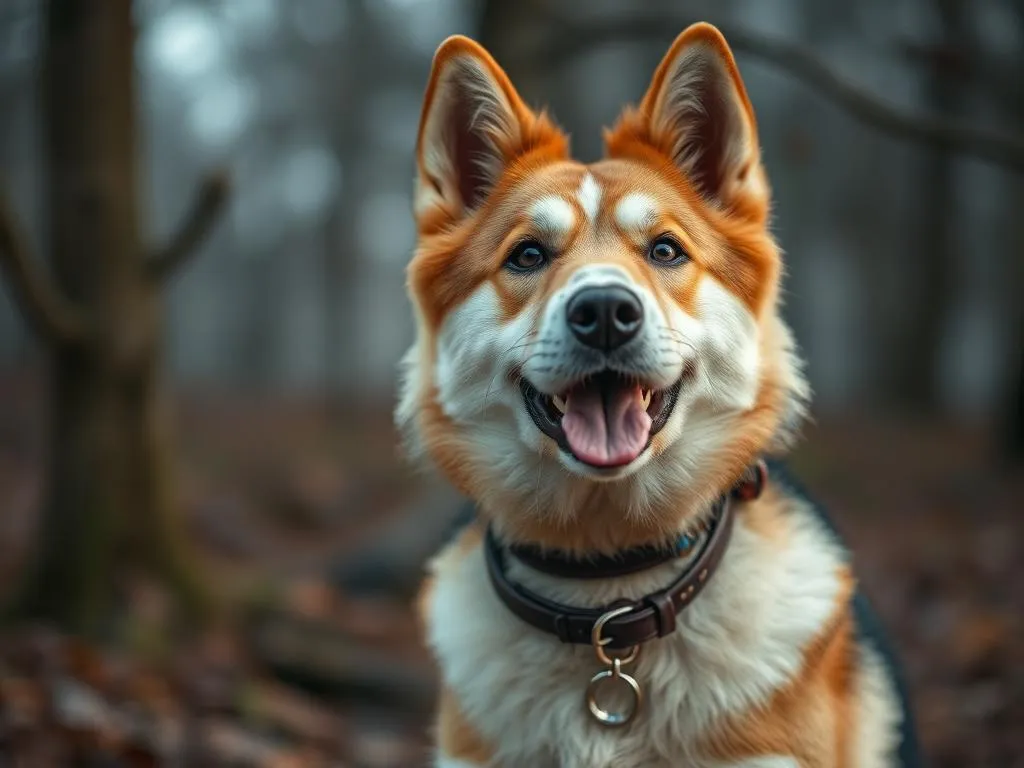
Introduction
In the world of dog breeds, each breed carries its own unique history, characteristics, and charm. Understanding these breeds is essential for potential owners, as it helps in selecting a companion that matches their lifestyle and preferences. One such fascinating breed is the Shikoku dog, a native Japanese breed known for its agility and intelligence. This article delves into the rich history, physical traits, temperament, care requirements, and the overall experience of living with a Shikoku dog.
History of the Shikoku Dog
Origin and Ancestry
The Shikoku dog has its roots on Shikoku Island in Japan, where it was originally bred for hunting deer and boar. This breed is considered one of the six native Japanese breeds, along with the Akita, Shiba Inu, Kishu Ken, Shikoku, and the Japanese Chin. The Shikoku dog is believed to be a descendant of the ancient Japanese hunting dogs, showcasing a lineage that dates back over 3,000 years.
Historically, these dogs were utilized for their keen sense of smell and exceptional agility. The Shikoku’s relationship with other Japanese breeds, particularly the Shiba Inu and Akita, is notable, as they share similar traits and characteristics. However, the Shikoku dog stands out due to its unique blend of size and temperament.
Cultural Significance
In Japanese culture, the Shikoku dog is more than just a companion; it is a symbol of loyalty and courage. Folklore often depicts these dogs as protectors and hunters, earning them a revered spot in local traditions. They are celebrated in art and literature, and their likeness can be found in various cultural representations across Japan. The Shikoku’s significance extends beyond mere companionship, embodying the spirit of resilience and independence that is highly valued in Japanese society.
Physical Characteristics
Size and Weight
The Shikoku dog is a medium-sized breed, typically standing between 17 to 22 inches tall at the shoulder. In terms of weight, they usually range from 35 to 65 pounds. Their size makes them a versatile companion, suitable for various living situations, including apartments and homes with yards.
Coat and Color
One of the distinguishing features of the Shikoku dog is its double coat, which consists of a soft undercoat and a stiff outer coat. This coat type not only provides insulation but also protects them from the elements. The Shikoku dog coat comes in several colors, with the most common being red, brindle, and sesame (red with black-tipped hairs). Their coat requires regular grooming to maintain its health and appearance, especially during shedding seasons.
Distinctive Features
The Shikoku dog boasts several unique physical traits. They have erect, triangular ears that contribute to their alert expression. Their tail is curled over their back, adding to their distinctive silhouette. The Shikoku’s body is well-proportioned, with a strong and athletic build, making them agile hunters and playful companions.
Temperament and Behavior
General Temperament
The Shikoku dog is known for its intelligent and loyal nature. They are independent thinkers, which can sometimes come off as stubbornness. However, this independence is balanced by their strong desire to please their owners, making them relatively trainable with consistent and positive reinforcement methods.
Interaction with Family
Shikokus are generally good with families, exhibiting a protective instinct towards their loved ones. They are affectionate with family members and can develop strong bonds, particularly with children. However, their energetic nature means they thrive in active households where they can engage in play and exercise regularly.
Socialization Needs
Socialization is crucial for the Shikoku dog. Early exposure to various environments, people, and other animals is essential to ensure they develop into well-rounded adults. While they can be reserved with strangers, proper socialization can help them become more open and friendly.
Trainability
Training a Shikoku dog requires patience and consistency. Due to their independent nature, they may not respond well to harsh training methods. Positive reinforcement, such as treats and praise, tends to yield better results. Engaging them in mentally stimulating activities can also enhance their trainability, as they enjoy challenges that test their intelligence.
Health and Care
Common Health Issues
Like all breeds, the Shikoku dog is prone to certain health issues. Some of the common concerns include hip dysplasia, progressive retinal atrophy, and food allergies. Regular veterinary check-ups and a good understanding of breed-specific health risks can help in early detection and management of these issues.
Routine Care Guidelines
Grooming a Shikoku dog involves regular brushing to maintain their coat and reduce shedding. During shedding seasons, which typically occur twice a year, more frequent brushing is necessary. Bathing should be done as needed, usually every few months unless they get into something particularly dirty.
In terms of exercise, Shikoku dogs require a significant amount of physical activity. They thrive on walks, runs, and playtime, making them ideal companions for active individuals or families. Mental stimulation through puzzle toys or training sessions is equally important to keep them happy and healthy.
Nutrition
Feeding a Shikoku dog a balanced diet is crucial for their overall well-being. High-quality dog food that meets their nutritional needs, including protein, fats, and essential vitamins and minerals, is recommended. Portion control is essential to prevent obesity, which can exacerbate health issues. Consulting a veterinarian for specific dietary recommendations tailored to your Shikoku’s age, size, and health status is advisable.
Living with a Shikoku Dog
Ideal Living Environment
The Shikoku dog adapts well to various living environments but thrives in homes with ample space for exercise. They can live comfortably in apartments if provided with regular outdoor activity. However, a house with a secure yard is ideal, as it allows them to explore and play freely.
Compatibility with Other Pets
Shikoku dogs can coexist with other pets, but their hunting instincts might lead to a higher prey drive, especially towards smaller animals. Early socialization is key to helping them learn how to interact appropriately with other pets. With proper introductions and supervision, many Shikokus can live harmoniously with cats and other dogs.
Activities and Exercise
Engaging a Shikoku dog in various activities keeps them physically and mentally stimulated. They excel in dog sports such as agility, obedience trials, and tracking. Regular hikes, fetch games, and interactive play sessions are excellent ways to burn off their energy and strengthen the bond between owner and dog.
Adoption and Purchase Considerations
Finding a Reputable Breeder
When considering a Shikoku dog, finding a responsible breeder is essential. Look for breeders who prioritize health testing and socialization of their puppies. A reputable breeder will provide health clearances, allow you to meet the puppy’s parents, and offer a supportive environment for your new pet.
Adoption Options
If you’re considering adding a Shikoku dog to your family, many rescue organizations and shelters may have them available for adoption. Adopting a dog not only provides a loving home to an animal in need but can also be a rewarding experience for families looking for companionship.
Cost of Ownership
The initial cost of acquiring a Shikoku dog can vary depending on the source. If purchasing from a breeder, prices typically range between $1,000 to $3,000. Ongoing expenses include food, grooming supplies, veterinary care, and training classes. Being prepared for these costs ensures a responsible and fulfilling ownership experience.
Conclusion
The Shikoku dog is a remarkable breed that brings joy, companionship, and a touch of Japanese culture into the lives of those who choose to welcome them into their homes. With their unique physical characteristics, intelligent and loyal temperament, and specific care requirements, they can make excellent pets for the right owner. It is essential for anyone considering a Shikoku dog to reflect on their lifestyle and commitment to ensure a harmonious and rewarding relationship. The joy of owning a Shikoku dog is not just in their companionship but also in the enriching experiences they bring to families.






